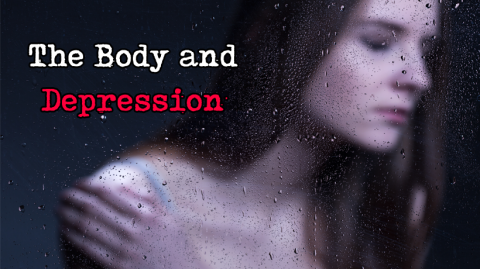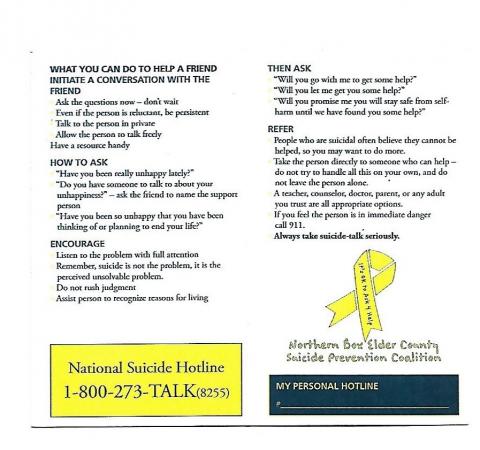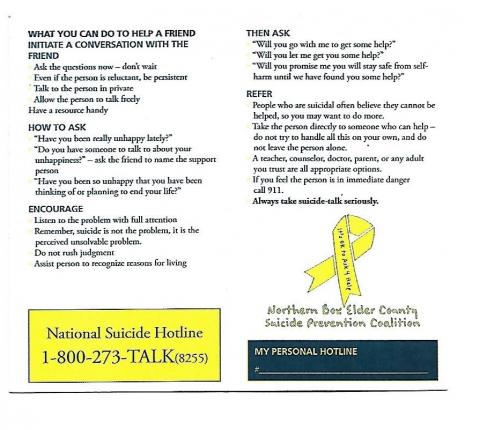


With the holiday season in full motion things all seem so festive with hustling and bustling around with so many activities to be done. There is a down side for many people depression, whether it is from all the hustling and bustling, trying have every happy, life, loneliness or a merited of a million other things it seems to be a big part in many of our life.
What is depression and how does it hurt us?
The MayoClinic.org defines depression as “a mood disorder that causes a persistent feeling of sadness and loss of interest. Also called major depressive disorder or clinical depression, it affects how you feel, think and behave and can lead to a variety of emotional and physical problems. You may have trouble doing normal day-to-day activities, and sometimes you may feel as if life isn’t worth living.”
There are misconceptions about depression. Depression is not voluntary nor is it merely being sad; it isn’t a spiritual failing or a sign of moral weakness. Depression doesn’t always make a person look sad or down, but that doesn’t mean it doesn’t impact the body of the depressed person.
Here is what depression can do to a person, physically.
Damage the heart
There is a relationship between depression and heart disease. Research has found that approximately one out of five people who have had heart bypass surgery likely have depression. It is not clear what causes this, but it possible that the harmful lifestyle choices that depressed people engage in—alcohol consumption, illegal narcotics, nicotine smoking—may contribute.
Stress and stress hormones
It can’t be said enough – stress kills. The hormones responsible for “fight or flight” response are designed to work for a short period of time. In chronically stressed, anxious or depressed people, the hormones stay around too long and can actually cause anxiety and depression – a vicious cycle.
Poor concentration
Depression triggers changes in the brain that can damage the brain’s ability to store and retrieve memories, and can interrupt the circadian rhythms that control sleep (leading to insomnia). These chemical changes in turn lead to difficulties with mental concentration and a loss of interest in pleasurable activities.
Increased glucose & risk of diabetes
Studies have shown that there is a clear link between elevated sugar in the blood (hyperglycemia) and depression. Hyperglycemia in turn can damage the kidneys and lead to type 2 diabetes.
Pain sensitivity
Depression has been shown to decrease a person’s pain tolerance. Two out of three people with depression also have complaints about aches and pains.
Fatigue and exhaustion
Depressed people do not replenish energy the same way non-depressed people do. This may have to do with how depression interrupts the balance of hormones in the body. It may also have to do with interruptions to normal sleep patterns.
Decreased immune system
The same hormones that increase in stress, anxiety and depression also weaken the immune system. A weakened immune system means one is more likely to get sick from viruses or experience infections.
Depression must be taken seriously. The shaming of depressed people has to stop. Chemical and hormonal changes are not a matter of will or a flaw in character. If you are depressed, seek help.
So much of how the body responds to stress depends on the individual. The list below is best used as a general introduction to psychosomatic symptoms, from which you might resonate with some, and not with others.
Lower Back: Anger
The lower back is a common place for the body to store repressed anger.
Stomach: Fear
When you’re afraid, your stomach and intestines tend to tense up.
Heart and Chest: Hurt
Yes, it seems like you can actually feel a broken heart
Headache: Loss of Control
You can’t control everything in life. In fact, trying to do so might even make you feel worse emotionally—and give you splitting headaches.
Neck and Shoulder Tension: Overtaxed
If you suffer from neck and shoulder tension that has no apparent cause, it’s likely that you’re feeling overburdened
Fatigue: Resentment
When you hold onto bitterness and anger, chances are that you do more damage to yourself than to the people you resent.
Numbness: Trauma
People tend to numb their feelings when an event is too overwhelming. Insomnia:
Unease with Change
Life-changing events—both good and bad—can have dramatic impacts on your sleeping habits.
Sources:
https://www.psychologytoday.com/us/blog/when-kids-call-the-shots/201807/...
https://www.psychologytoday.com/us/blog/happiness-in-world/201003/psycho...